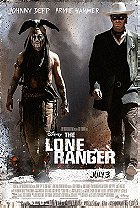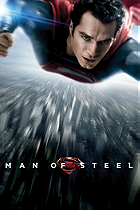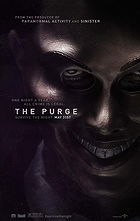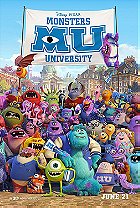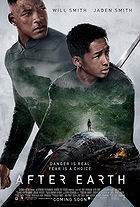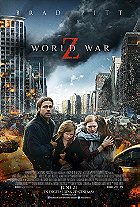If Alfred Hitchcock were still alive and working in the 1990s, he would most certainly have directed 1997's The Game. Dense in atmosphere and thrills, it was only the third directorial effort of David Fincher, who had exhibited his 'A' game two years prior with 1995's Se7en. Looking at Fincher's work over the years, The Game is a strong demonstration of the filmmaker's artistic trademarks, as it's an outstandingly tense thriller that combines thematic relevance with sumptuous visuals. Although the script is not airtight, this is one hell of a movie, and it toys with viewer expectations just as the players in the film toy with the protagonist. Nothing here is what it seems, and the constant unpredictable surprises keep you gripped until the very end. And it's an even better experience if you're completely in the dark about the movie for your first viewing.

A San Francisco multimillionaire businessman, Nicholas Van Orton (Michael Douglas) spent his life climbing to the top of the corporate business ladder, in the process becoming emotionally stunted and shutting out everyone he holds dear. On the day of his 48th birthday, the age when his father committed suicide, Nicholas agrees to have lunch with his brother Conrad (Sean Penn). As a birthday present, Conrad invites Nicholas to a company called Consumer Recreation Services (CRS). Begrudgingly, he agrees to the unexplained "game" offered by CRS, going through extensive physical and psychological assessments. Nicholas is thrust into the mysterious game, receiving keys and being directed to perform various tasks. But CRS begins to intrude into his daily life to an unsettling degree, controlling everything, monitoring him all the time, and even damaging his property, implying that something nefarious may be going on. As his descent down the rabbit hole becomes increasingly dangerous, the line between reality and fantasy is blurred.
Written by Michael Ferris and John D. Brancato, The Game is notable because of its ambiguity. It gives us the chance to experience the game alongside Nicholas; like him, we struggle to figure out what's going on, and, just when we think we've cracked it, something happens to make us doubt our conclusions. Furthermore, the movie is somewhat of a morality tale, as Nicholas undergoes an epiphany by the film's end. It's the type of old-fashioned tale that shows a man might have significant wealth, but he realises that such a fortune means nothing compared to what's genuinely important in life. However, the screenplay is marred by fundamental flaws in plausibility that are difficult to swallow. Without spoiling too much, we are supposed to believe that many of Nicholas' actions were pre-determined based on assessments of his physical and mental state. Too many specifics are nailed by CRS, including exactly where he might aim a gun and the exact point where he might leap off a building to his death. The Game is a pretty intelligent thriller, but a better-constructed house of cards might have achieved perfection.

Despite the script issues, Fincher's treatment of the material is top-flight. Although the pacing is a tad slow from time to time, The Game is otherwise a masterpiece from a technical perspective, relentlessly intense and claustrophobic. As Nicholas scrambles to make sense of all the strange happenings, it's hard not to find yourself riveted as you wait to see what CRS has in store for him next and wonder whether or not every event or character is purely happenstance or elaborately planned. Also noteworthy are the photography and mise-en-scène; The Game is a visual stunner packed with gorgeously composed shots and a number of perfectly orchestrated set pieces. The use of tonal colours and careful lighting give the film great depth and atmosphere. Hence, while the mystery and intrigue keep you engaged when you watch it for the first time, the careful craftsmanship and nuances will grasp your attention on repeat viewings.
Perhaps The Game's biggest asset (and that's a tough call) is Douglas, submitting one of the best performances in his career. Douglas credibly sells Nicholas as a stubborn, arrogant man, and as his life is turned upside down, his psychological unravelling is truly a marvel to see. Douglas handles the character's arc flawlessly, gradually transforming the character as he works his way through the narrative. It helps that Douglas is such a charismatic presence to boot. We need to care about Nicholas for the film to engage us, and Douglas nails it. In the supporting role of Conrad, Penn (in one of his earlier roles) is flawless, selling the material with vigour. Also of note is Deborah Kara Unger, who does a commendable job playing Christine, a woman whose loyalties and motivations are shady.

The Game is underrated Fincher, a sharp thriller with a sound conceptual framework and an element of welcome psychological complexity. There are obvious flaws in the story's development, and one has to accept that things will not become clear until the very end, but the payoff is genuinely breathtaking. Once you have seen the ending, it's impossible to watch the film the same way ever again. However, a second viewing is also a wonderful experience because seeing things from an entirely different perspective allows you to appreciate the careful construction.
7.8/10
 Login
Login
 Home
Home 183 Lists
183 Lists 1668 Reviews
1668 Reviews Collections
Collections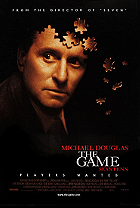
 0 comments,
0 comments, 